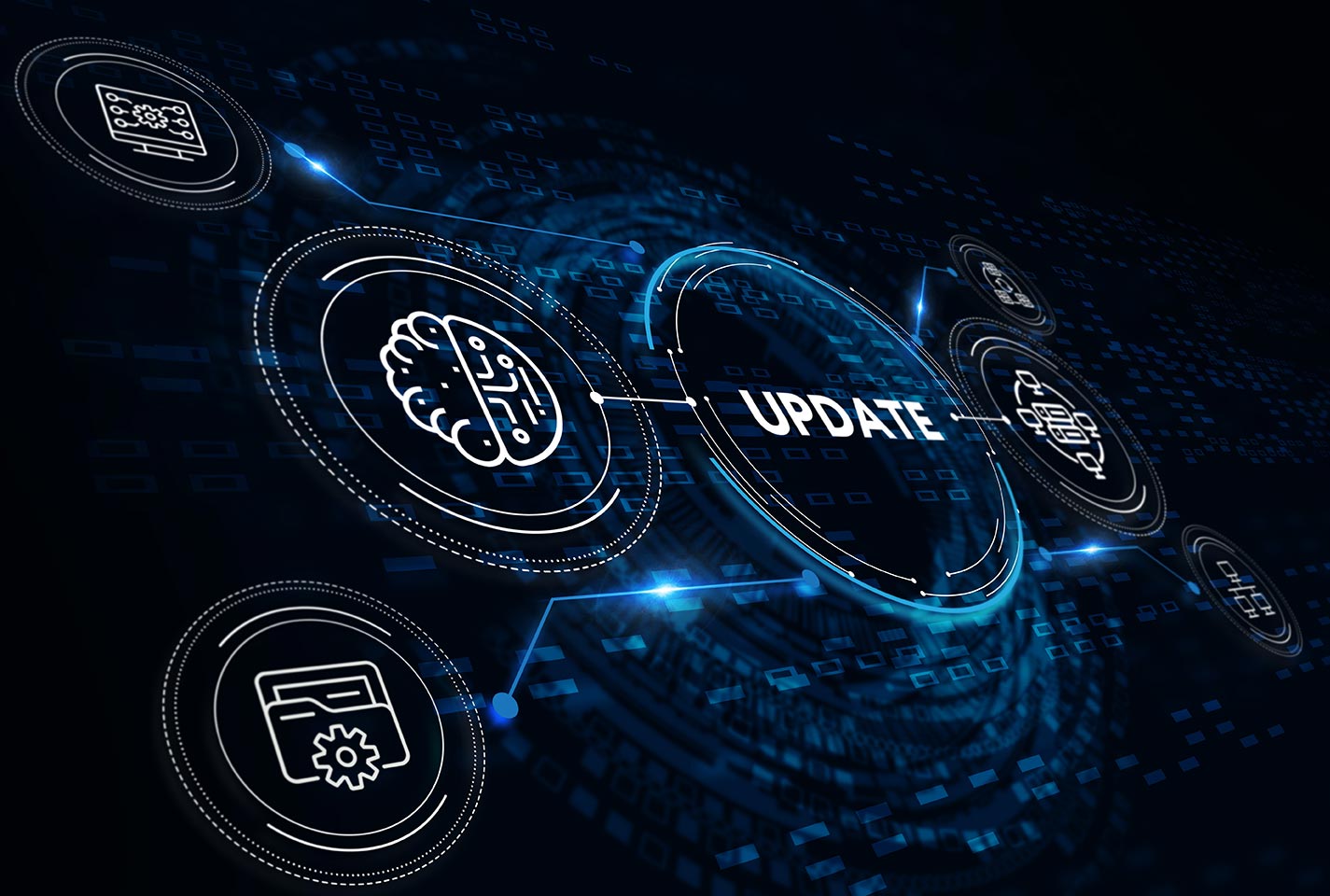Updating software regularly is crucial for maintaining system security and performance. Ignoring updates can lead to vulnerabilities and inefficiencies.
Updating software is more important than ever in today’s fast-paced digital world. With each update, you gain control over your system’s security and performance. These updates often include security patches, performance improvements, and new features that enhance user experience. Neglecting these updates can expose systems to cyber threats, slow performance, and cause compatibility issues. Regular updates ensure your software runs smoothly and securely, protecting your data and optimizing your workflow. Dive into why regular software updates are essential for personal and professional use, and learn how they can benefit you in the long run. Consider Liquid Web, offering high-performance servers and expert support for a reliable hosting solution to support your software needs.
Introduction To Software Updates
Software updates are new versions of programs. They fix bugs and improve performance. Developers release them to add new features. Keeping software up-to-date is crucial for security. Updates can also improve compatibility with new hardware. Regular updates ensure the best user experience.
Regular updates protect against security threats. Hackers exploit outdated software. Updates close these security holes and fix bugs that can cause crashes. They also ensure your software runs smoothly and can add new features. This keeps the software current and valuable. Businesses rely on updates for stability. It is important to update software regularly.

Credit: cyberseniors.org
Enhancing Security Through Updates
Updating software is essential for protection against vulnerabilities. Cyber attackers look for weaknesses in outdated software, which are called vulnerabilities. Once they find these, they can harm your system, steal data, or damage files.
Software updates fix these security holes and provide patches to cover the vulnerabilities. This makes it harder for attackers to break in, so keeping software up to date is a good defence.
Personal and sensitive information must be kept safe. Outdated software puts this data at risk. Hackers can access your private details and misuse them for illegal activities.
Regular updates ensure data protection and strengthen the security of your system, providing you with peace of mind. By constantly updating your software, you safeguard your data, reducing the risk of potential threats.
Improving Performance And Stability
Updated software often means better performance and increased speed, leading to a more efficient and productive work environment. Developers remove old code and add new, efficient code, which makes programs run faster. Faster programs are more efficient, saving time and resources. Your device will work smoother, allowing you to focus on your tasks without interruptions.
Software updates fix bugs and glitches. Bugs make programs act weird, and glitches can crash your device. Updates fix these problems, making your software more stable. Stable software runs without issues, so your work will not be interrupted.

Credit: www.citynet.net
Access To New Features And Improvements
Updating software can give access to new features. These features can improve efficiency and add exciting tools. Developers work hard to bring these innovations. Updates ensure your software stays current with the latest technology. These changes can also make tasks more manageable.
Updates often include user experience enhancements. These enhancements can make the software easier to use and fix bugs that cause problems. A smoother experience is always better. These enhancements can make everyday tasks more enjoyable. Regular updates ensure the software runs smoothly.
Compatibility And Interoperability
Updating software ensures it works well with other tools. New software versions fix bugs and improve compatibility, keeping systems running without errors. Regular updates prevent integration issues and ensure tools communicate well.
New hardware requires updated software. Without updates, devices may not work correctly. Updates add support for new hardware, ensuring all components function properly. Regular updates keep systems up-to-date, helping avoid hardware compatibility problems.

Credit: threatpicture.com
Cost Efficiency Of Regular Updates
Regular software updates help avoid costly security breaches. Old software often has security flaws, which hackers exploit. Fixes in updates keep your data safe. Preventing a breach saves money, while fixing a breach costs a lot. Protect your business with updates.
Updated software reduces maintenance costs. Fewer issues mean less support is needed. Old software breaks more often. Fixing broken software is expensive. New updates keep things running smoothly. Save on support costs with regular updates. Spend less on fixing problems.
https://www.youtube.com/watch?v=P39e0y8Qujw
Best Practices For Managing Updates
Automating updates saves time and reduces errors. Use tools that handle updates automatically. This helps keep the software current without manual work. Scheduling updates during off-peak hours minimizes disruptions. Regular updates improve security and performance and ensure compatibility with new features.
Always test updates in a controlled environment first. This helps identify potential issues before they affect everyone. Create a backup before applying updates. This ensures you can revert to the previous version if something goes wrong. Most software allows you to uninstall the update or restore to a previous version. Testing ensures that the update works well with existing systems. It also helps in catching bugs early.
Conclusion: The Importance Of Staying Updated
Regular software updates ensure security and improve performance. Staying current helps protect against threats and enhances functionality.
Summary Of Key Points
Updating software regularly keeps your system safe from new threats and fixes bugs that could cause problems. New updates often have better features that make tasks more manageable. Ignoring updates can slow down your system, which can lead to security risks. Regular updates keep everything running smoothly. Updated software works better and faster. It also keeps your data secure.
Final Thoughts On Regular Software Updates
Software updates are critical. They protect your system from attacks and improve how your programs work. Updates can add new features, making your work easier. Ignoring updates can cause issues and slow down your device. Constantly update your software as soon as you can. This keeps everything safe and working well.
Frequently Asked Questions
Why You Should Always Update Your Software?
Constantly update your software to enhance security, fix bugs, boost performance, and access new features. This will help you stay protected and efficient.
Why Should You Update Your Antivirus Software Regularly?
Regularly updating your antivirus software ensures protection against the latest threats, malware, and vulnerabilities. It enhances system security.
Why Is It Important To Update Your Devices Regularly?
Updating your devices regularly ensures security, improves performance, and provides access to new features. It protects against vulnerabilities and bugs.
What Are The Benefits Of Software Upgrades?
Software upgrades improve security, enhance performance, fix bugs, add new features, and ensure compatibility with the latest technologies.
Conclusion
Regular software updates are crucial for security and performance. They protect against vulnerabilities and enhance functionality. Ignoring updates can lead to risks and inefficiencies. Stay current to maintain optimal software health. For reliable hosting solutions, consider Liquid Web. They offer secure, high-performance, and customizable plans. Ensure your software and hosting are always up-to-date for the best results.
